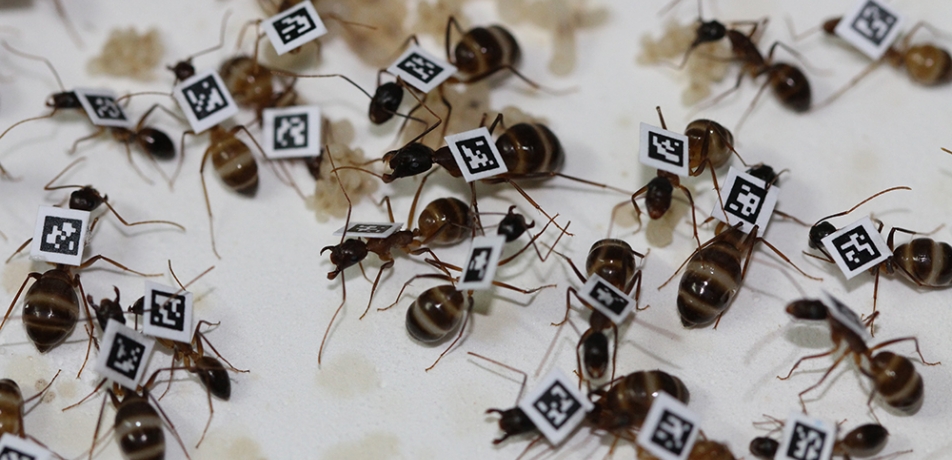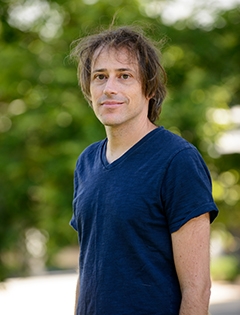The social networks of ants
Individual knowledge plus cooperation leads to success
Briefs

Ants can lift far more than their body weight. However, when a particle of food is too heavy for an individual to drag back to the nest, ants also know how to work together.
This is the subject of an intriguing new study by Dr. Ofer Feinerman of the Department of Physics of Complex Systems. In a recent publication in eLife, Dr. Feinerman has demonstrated that, in order to navigate collectively and successfully, ants literally have to go off the beaten track.
When an individual ant finds food worth gathering, it returns to the nest using a stop-and-go motion, repeatedly laying down small scent markers which - like the pebbles in the story of Hansel and Gretel - lead other ants to the target. But once the “moving crew” arrives, the carrier ants - none of whom has all the information required to chart the best route - lay down short, additional markers representing their own scent-based “suggestions” about directional strategy. And while these suggestions may be wrong, and although the collective doesn’t follow the new markers with 100% accuracy, it all works out: by exploiting the limited knowledge of individuals, such navigation results in a dynamically-blazed trail that guides the group back to the nest more efficiently than the trail marked by the original ant.
“The first ant may traverse a narrow passage to reach the food, one that would block a large group bringing the food back to the nest,” says Dr. Feinerman. “The loose manner in which the group follows the scent signals allows it to benefit from information available to individuals, while avoiding pitfalls that may direct them toward dead ends.”
Based on video analysis of ant movement, and in collaboration with experts in distributed computing, Dr. Feinerman has developed a mathematical model of collective navigation during cooperative transport, something that may eventually prove useful for humans as well.
“Our study probes the relation between information held by an individual, and how such information, even if occasionally misleading, can contribute to group decision making,” he says. “We learned that, collectively speaking, going “off track” may bring you closer to your goal.”
Dr. Ofer Feinerman is funded by The Tom Beck Research Fellow Chair in the Physics of Complex Systems, The Clore Foundation, The Yeda-Sela Center for Basic Research. Dr. Feinerman is the incumbent of the Shlomo and Michla Tomarin Career Development Chair.

Dr. Ofer Feinerman







